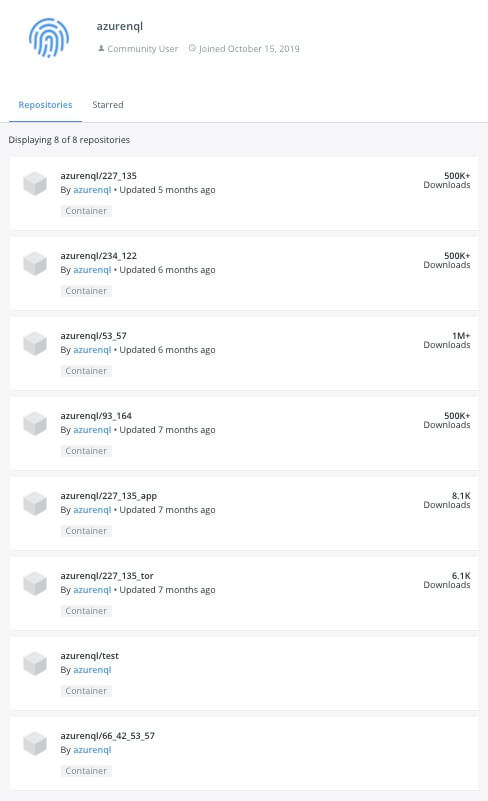Researchers observed a malicious Docker Hub account, “azurenql” that was active since October 2019 hosting malicious images to mine cryptocurrency, Monero.
According to wallet IDs, it was found the attacker earned 525.38 XMR, which roughly around 30000 USD based on today’s dollar price.
Docker is nothing but OS-level virtualization to deliver software in packages called containers. The dockers are popular nowadays, its popularity abused by attackers to make money by cryptojacking.
Malicious Docker Accounts
Researchers observed identified a user account named “azurenql” contains eight repositories hosting six malicious Monero mining images.

Paloalto researchers observed that top image with Docker Hub account was pulled more than 1.47 million times. The base images use Ubuntu 16.04.6 LTS operating system.
To anonymize the traffic attackers uses Tor and it is configured to listen on its default port, 9050, here is the flow.

Attackers used two methods to mine cryptocurrency by running these malicious images in the user’s environment.
Method 1: In the first method attackers directly submitting the mined blocks to the central minexmr pool using a wallet ID.
Method 2: In the second method attackers instances deployed on a hosting service running their mining pool that is used to collect mined blocks.
Researchers observed that wallet ID is still used and the recent mining activity for this wallet in April and May 2020.
Cryptomining attacks are increasing rapidly, attackers use to compromise servers, personal computers, Chrome extensions, and web portals to mine cryptocurrencies such as Monero.
The malicious activity was reported by Unit42 researchers to Docker Hub security and the malicious accounts taken down quickly.



.png
)
